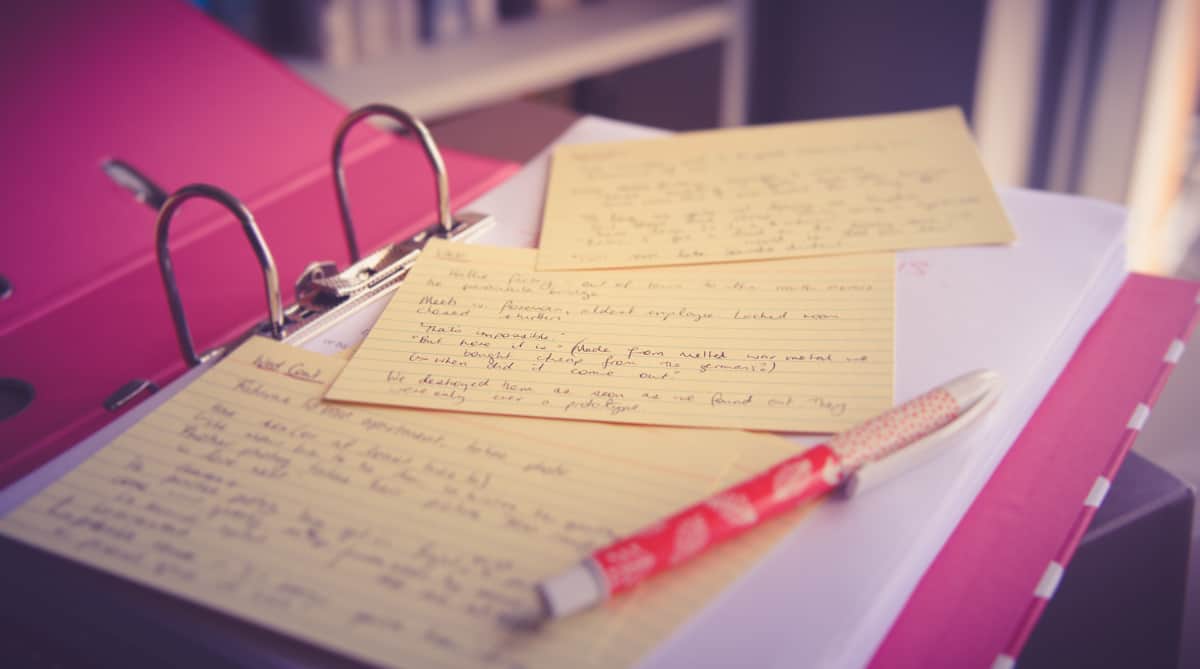Plotting or pantsing? It’s a debate that comes up at every writers festival, convention or event. Do you plot your books or fly by the seat of your pants? The responses vary: some mix both, some write to uncover the story, some people prepare excel spreadsheets. I used to laugh at the people with plot spreadsheets for stories.
That was until I wrote my latest novel.
Why oh why did you become one of those people?
It’s a straight crime novel, and as we know, good crime is plot heavy. You have to keep track of murder weapons and what the investigator knows and the butler and the little old grandma who nobody suspects. If you’re writing purely from a first person perspective, this might be easier to make up as you go along, as you’re uncovering clues at the same time as the investigator, but for a third person novel with multiple POV characters, it’s almost impossible to keep track of these ideas in your head.
When I was writing my novella, Double Exposure, I found myself stuck in the middle and had to plot my way out. This time round, I wanted the opening to have impact in the ending, I wanted there to be defined story arcs for the characters. If you’re writing genre fiction, chances are there are expectations or moments you HAVE to hit. For example, romance must have a happy ending. Most proceedural novels will conclude with the killer being brought to a form of justice. You might not realise it, but if you have a definitive ending in mind, you’re still plotting whether you write it down or not.
There’s a myth that if you plot you’re limiting the discovery process of the story. Far from it, you’re freeing yourself to concentrate on your bread and butter: words. In writing my most recent novel, having a strong idea of where the story was going enabled me to dig into the characters and their motivation. By plotting, I knew intimately how each would respond to an event. It challenged me to think up different ways of approaching characters responses, without feeling any pressure of the word count I needed to hit for that day.
Ways I plotted my novel:
- planned out the structure on an insane number of index cards posted across my wall
- made a spreadsheet of those cards so I didn’t look slightly unhinged when friends came over to find my office covered in paper notes about murders…
- wrote a chapter by chapter synopsis of what happened, what clues are given and what is the outcome for the character/s in the chapter.
How plotting helped me
Plotting made such a difference when I was becoming stuck. I’d simply return to the synopsis sheet to figure out where I was. There were moments for me which didn’t work when it came to writing them. So I changed the plot. I changed the order, I moved things around. Just because you plotted it doesn’t mean you give over agency of your novel to the paper! You’re the author. If it’s not working, change it.
There was a point where I had to add some extra scenes in the middle. I realised it wasn’t fleshed out enough as a mystery. So I did these on the fly, but still with an idea of what information they needed to get, and where they needed to end up. These were the hardest chapters to write as they were the least thought out.
Plotting also challenges your first ideas. Sometimes we can resort to cliches or ideas we’ve heard before, because we didn’t plan out our story, because it’s easy. It’s there. Plotting means that you can question your first choices without losing a whole lot of time retracing your steps in the edit. If you really dig into the narrative early, you can come up with something that hasn’t been done before.
So yes, consider me a convert to plotting. And yes, now I make plot spreadsheets.
So are you a plotter or pantser? Have your say in the comments below.

Share your thoughts